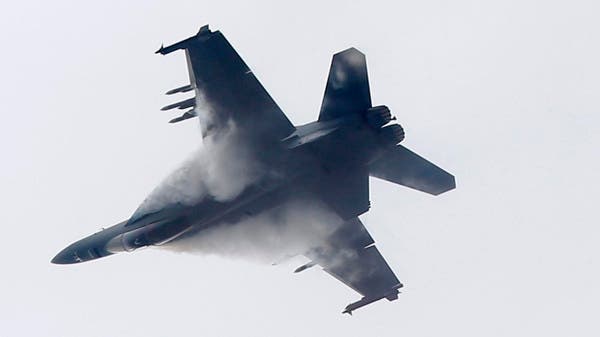
WASHINGTON — Kuwait is expected to announce in coming weeks an order for 28 Boeing Co F/A-18E/F Super Hornets, a $3 billion-plus (£1.96 billion plus) deal that will keep the jets' St. Louis production line running well into 2019, according to people familiar with the deal.
Kuwait, which operates a fleet of earlier F/A-18 models, has signed a formal letter stating its firm plans to buy newer-model Boeing jets, according to one of the people who is familiar with the deal but was not authorized to speak publicly.
A second source confirmed that the U.S. government was working with Kuwait to approve the sale of advanced Boeing fighter jets, but gave no further details.
One U.S. official said the proposed Kuwaiti purchase of Super Hornets would be discussed as part of President Barack Obama's summit meeting with Gulf Cooperation Council leaders next week but said it was not clear the deal would be finalised then. The expected deal would make Kuwait the second foreign country after Australia to order the new Boeing jets.
U.S. government officials declined further comment.
The Kuwait order, as well as separate moves by lawmakers to approve the U.S. Navy's request for 12 extra Super Hornets, should now provide sufficient comfort for Boeing to bet its own money to extend its St. Louis production line. It is currently slated to shut down at the end of 2017.
Boeing spokeswoman Caroline Hutcheson said a near-term Middle Eastern order and congressional funding for 12 more Super Hornets would allow the company to continue delivering jets without a break in the production line.
She said both elements were needed, cautioning against any assumption that the Kuwaiti order alone would suffice to keep the line running beyond the end of 2017.
Howard Berry, Boeing's top international sales executive, last month said the company expected a decision about F/A-18 orders within months from an unnamed Middle Eastern country.
Boeing assembles the jets in St. Louis, while weapons maker Northrop Grumman Corp builds the plane's aft/centre fuselage section and vertical tails in El Segundo, California.
The new U.S. and Kuwaiti orders would allow production to continue well into 2019, said one of the sources.
Boeing officials have previously said they must decide this summer - even before Congress finalises the fiscal 2016 budget - whether to start shutting down the line or use the company's own funds to buy titanium and other supplies that take a long time to deliver. Final 2016 funding levels remain uncertain.
Denmark is also weighing possible orders for Boeing Super Hornets, but that decision is now expected to slip to late 2015 after an election there, according to industry and government sources.
Boeing is also vying for orders from Canada, which is expected to announce the results of its fighter competition this fall, as well as Malaysia and Belgium.
The company is competing against Lockheed Martin Corp, whose F-35 fighter jet offers more advanced stealth capability, for possible orders in Canada, Denmark and Belgium.
Boeing officials argue that the F/A-18 offers countries a low-risk option for renewing their fighter fleets because it is combat-proven and affordable, drawing comparisons to early cost overruns and delays on Lockheed's F-35 fighter jet, which is still completing development.
Boeing stepped up its lobbying efforts earlier this year after the Navy added 12 F/A-18s, worth $1.15 billion, to its list of "unfunded priorities." The House Armed Services Committee last week included funding for the jets in its version of the fiscal 2016 defence authorization bill.
http://www.nytimes.com/reuters/2015/05/06/business/06reuters-boeing-kuwait-exclusive.html?smid=tw-share

